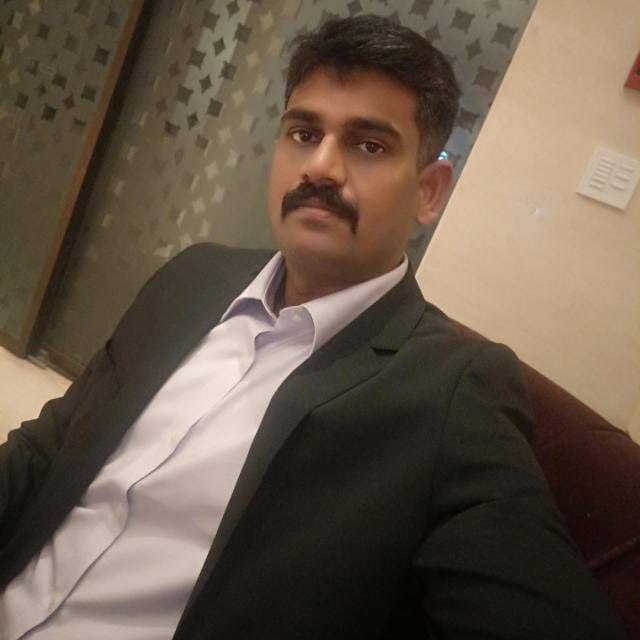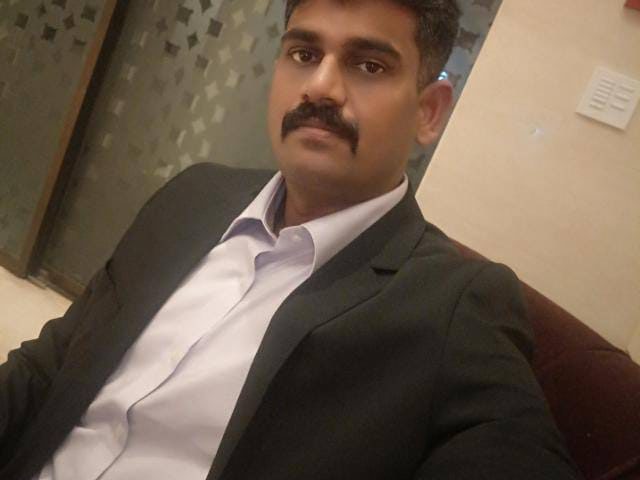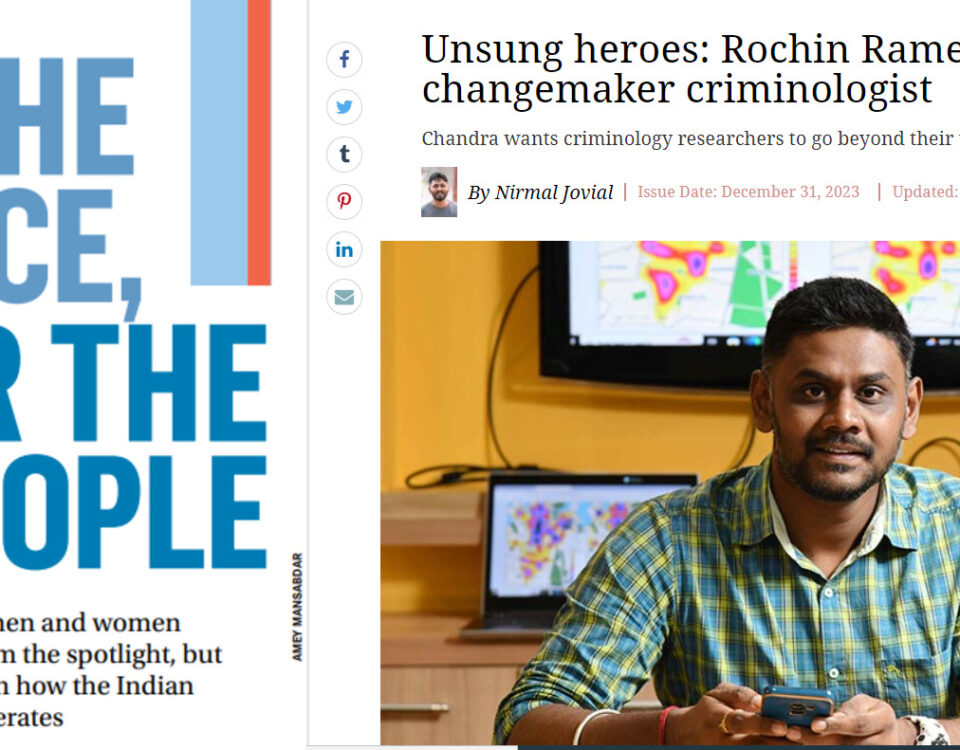The most worrisome discrepancy is the one between the syllabus and job requirement, says security chief

Samarth: A Handbook on Child Protection and Welfare
March 29, 2019
Policing During COVID-19 Pandemic Worldwide: Successful Practices and Lessons Learned
April 19, 2019
Sailapathy Rajendran. Photo: Special Arrangement
RAAGHAVI SENTHIL INTERVIEWS SAILAPATHY RAJENDRAN | April 18, 2019
Sailapathy Rajendran, the Vice-President of Corporate Security at a multinational company, talks to CCPP about what it takes to make it in corporate security.
What was your path towards becoming a criminologist specializing in corporate security like?
Ever since my childhood, I’ve dreamt of joining the uniformed services. My father was a constant source of support, as I started moving towards my dream at a young age. I was an active participant in NCC during high school and was also awarded a C-level certificate from the Army Wing. I couldn’t, however, find an opportunity to work in the uniformed services.
On graduating in 2003 with a degree in Economics, I came across a Criminology course being offered at Manonmaniam Sundaranar University (MSU), Tirunelveli and was immediately intrigued. I quickly went through the course details and contacted the faculty members, who only inspired my interest in Criminology.
That is how I joined the pioneer batch of Master’s program at the Department of Criminology in MSU. Our mentor, Prof. K. Jaishankar, who is presently at the helm of the Department of Criminology at Raksha Shakti University, Ahmedabad, took great effort to prepare a placement brochure and invite companies for a campus interview, wherein I was selected as a management trainee in one of the leading security and investigation agencies in Chennai.
What a day in the life of a Chief Security Officer is really like?
As the Head of Corporate security, I am responsible for overseeing the end to end operations of the corporate security department which includes physical Security, E- Security, fire safety, investigations and vendor management.
Physical Security and E-security operations involve risk analysis and mitigation plans as per facility’s topography, personnel deployment planning and execution and the security of control room operations.
In the fire and safety division, Emergency Response Team (ERT’s) are created by selecting employees at random and training them to handle emergency situations, in addition to the management of trained security personnel.
Investigations involve handling physical security related inquiries while administerial duties can range from strategy planning to budget formulation to the management of service providers.
What do you think is the role of criminology in society today?
Criminology is a novel subject comprising of diverse approaches and theories that allows us to understand the psycho-social factors that cause people to commit crimes. As criminologists, our work may be instrumental for the society to develop a better understanding of crime and how to protect against it. A criminologist’s job doesn’t end here. We are also responsible for formulating programs for the rehabilitation of victims as well as offenders. As a corporate security professional, profiling is a part of my job. Identifying patterns and applying psycho-analytical theories to complaints and grievances help us go a long way in addressing them.
Can you tell us about the challenges you faced and the hurdles you had to overcome as a criminology graduate?
The greatest hurdle in the field of civil security is that experience is prerequisite for most recruiters. Defense personnel often have an edge in this regard. However, a trusting security manager from GRT hotels and resorts saw the potential in me and hired me as a security supervisor. It is often the first step that is the hardest. Subsequently, I moved to other MNC’s and groomed myself as corporate security professional.
It is no secret that criminology graduates today face similar issues to find opportunities. My suggestion to them is to keep an open mind and be ready to learn and unlearn things in order to make it to the top.
Even after the climb, there are hurdles that one may have to face on a daily basis. For instance, many organizations believe that the security department is not significant as it is not a revenue generator. It is therefore not easy to get the necessary budget allocations for the security department from the management. As the head of security, I have to convince the management to improve, implement and maintain security standards.
Based on your experience, what skills must criminology graduates possess in order to meet the needs and demands of the security industry?
Analytical thinking, good leadership and a commanding personality are few of the things that we look for in the security industry. The job is versatile and demanding and graduates with a background in NCC would naturally be well-tailored for it.
As the Vice President of a security company, how do you think we can enhance the job opportunities for criminology graduates in security industry?
The most worrisome discrepancy is the one between the syllabus and job requirement. I often find that graduates with a criminology background are not aware of the current security systems that are in place. This is not a serious impediment however, as it can be overcome with an eagerness to learn. In my opinion, criminology departments should update the syllabus from time to time with contemporary developments as the security industry is dynamic and ever-changing. Also, if the students are encouraged to specialize in security management, it would greatly improve their job prospects.
Have you ever been invited for campus recruitment by criminology departments?
The network of criminology is surprisingly small and promising graduates are often referred to me through the criminology department from various universities.





